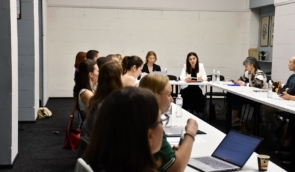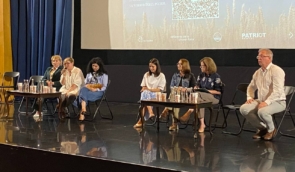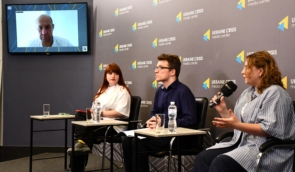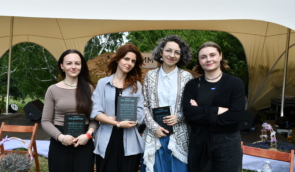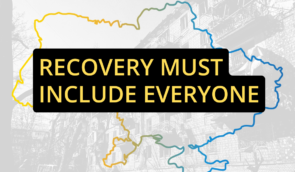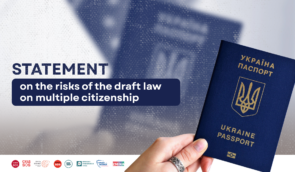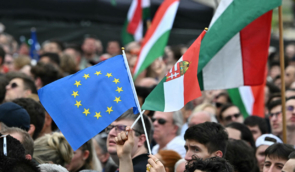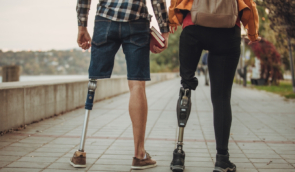Authorities and human rights defenders discuss in Kyiv liberation and future of Crimea
On May 18, the Day of Remembrance of the Victims of the Genocide of the Crimean Tatar People, the “Remembering History – Returning Territory” event dedicated to the history, return and future of the peninsula was held at the Kyiv Railway Central Station. Government representatives, human rights defenders, and public figures took part in the event.
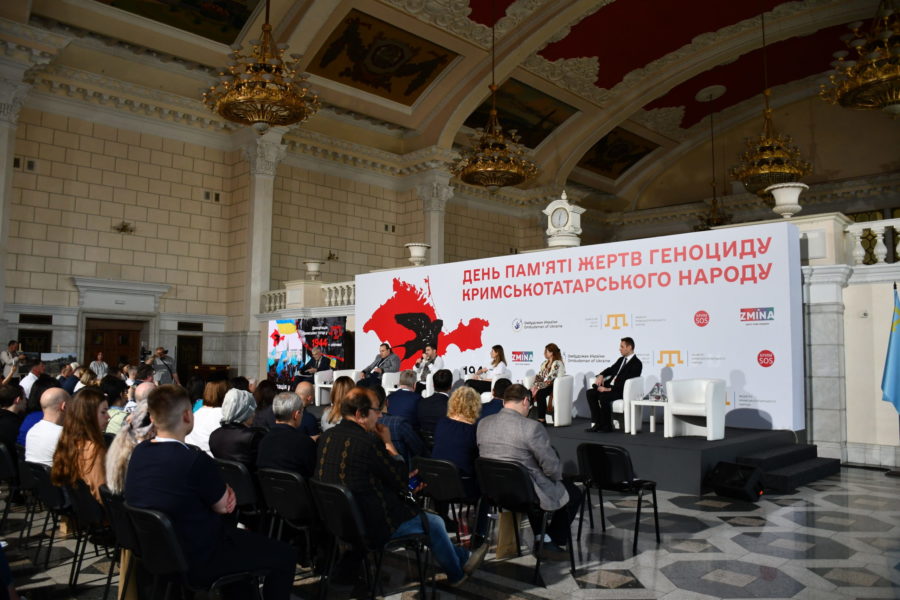 Photo: ZMINA
Photo: ZMINAThe event was organized by the Office of the Ombudsman of Ukraine, the Mejlis of the Crimean Tatar People, CrimeaSOS, and Human Rights Centre ZMINA.
Since 2015, the Day of Remembrance of the Victims of the Genocide of the Crimean Tatar People has been marked on May 18. This day 79 years ago, by the order of dictator Joseph Stalin, about 200,000 Crimean Tatars were deported in railway freight cars thousands of kilometers from home – to East Asia. This was the culmination of ethnic cleansing and persecution of the indigenous people of Crimea by the Soviet occupiers.
As part of the event, the art performance “Tashke-Tavaksay Hell Road” was held. During it, an excerpt from the diary of Nariman Kazenbash, who at the age of 13 was deported from Crimea along with other Crimean Tatars by the Soviet authorities in 1944, was read out.
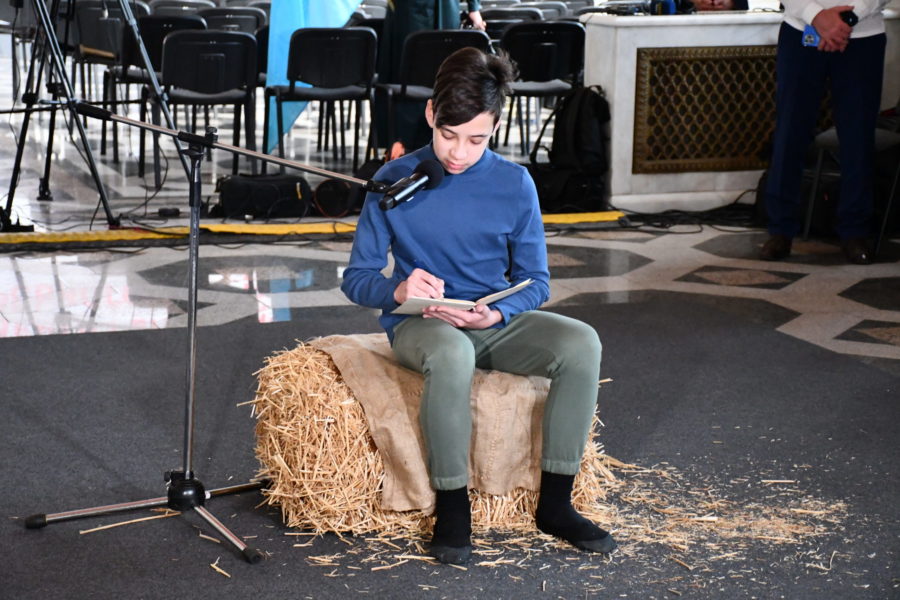 Photo: ZMINA
Photo: ZMINAUkrainian Parliament Commissioner for Human Rights Dmytro Lubinets drew parallels between the actions of the Soviet Union and the present-day Russian Federation: deportations, closure of schools, suppression of language, destruction of religious buildings.
“These crimes must not be forgotten, and the guilty must be punished,” Lubinets emphasized.
ZMINA legal analyst Onysiia Syniuk noted that the modern deportation of Ukrainians by the Russians looks different: “The ‘wrapper’ has changed. Now the Russians claim that they save people by evacuating them. The form of deportation has changed, but the essence of their actions has remained the same — they take people away from the land, homes, and communities in which they and their ancestors lived for years. The Russians pretend they rescue people from humanitarian disasters which they themselves create by purposefully shelling civilian objects, hospitals, and storage facilities, by not giving access to humanitarian cargo and cutting off people from any opportunity to leave for the unoccupied territory of Ukraine.”
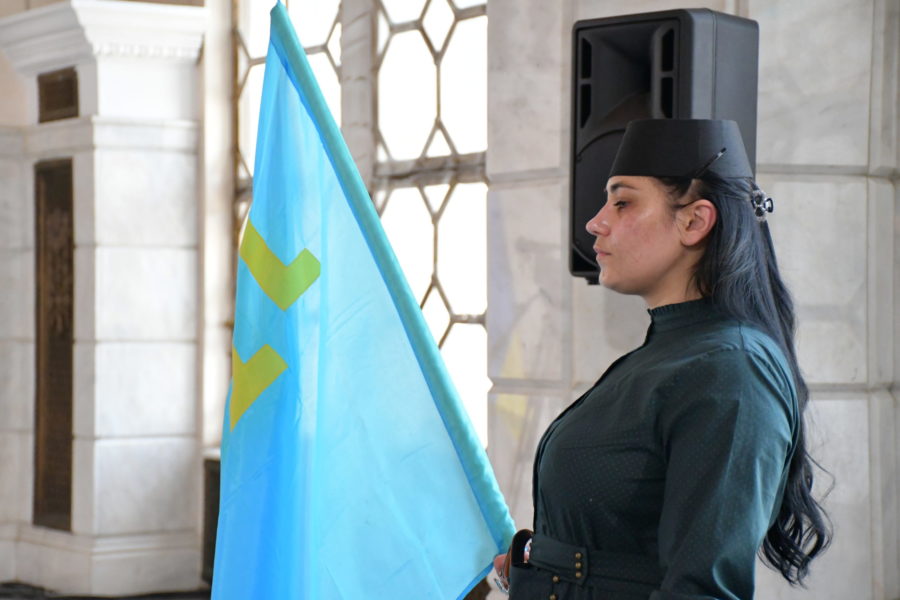 Photo: ZMINA
Photo: ZMINAThe expert said that Russia is committing the crime of deportation, so now Ukraine and the world must do everything possible to properly classify deportation as genocide, condemn it, and hold all those responsible to account.
“Not only we must remember these crimes against the Crimean Tatar people and the Ukrainians. Russia must remember them and bear responsibility for them,” Syniuk is convinced.
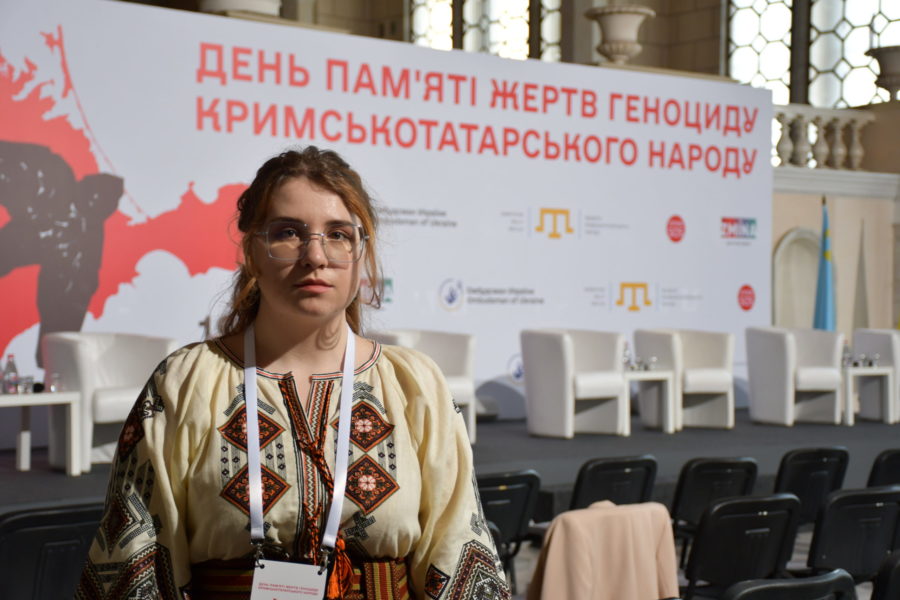 Photo: Onysiia Syniuk / ZMINA
Photo: Onysiia Syniuk / ZMINAMinister of Reintegration of the Temporarily Occupied Territories of Ukraine Iryna Vereshchuk underscored that the vision of the Crimean Tatars regarding the restoration of the peninsula should be taken into account after the liberation of Crimea,
Tamila Tasheva, the Permanent Representative of the President in Crimea, believes that after the liberation of the peninsula, it should be integrated into the Ukrainian and European infrastructure as much as possible and undergo “friendly militarization”, i.e. completely get rid of the Russian fleet.
Chairman of the Mejlis of the Crimean Tatar People Refat Chubarov, Head of the State Property Fund of Ukraine Rustem Umierov, First Deputy Minister of foreign Affairs of Ukraine Emine Dzhaparova, member of the Mejlis of the Crimean Tatar People, Head of Board of the Crimean Tatar Resource Center Eskender Bariyev, Head of Board of CrimeaSOS Oleksiy Tilnenko, and others also spoke at the event.
Moreover, the guests of the events participated in a marathon of writing letters to political prisoners to support them and watch the photo exhibitions “Eyewitness testimonies of crimes” about Crimean Tatars deported from Crimea in 1944 and “Stories from occupied Crimea” about contemporary persecution of the Crimean Tatar people.
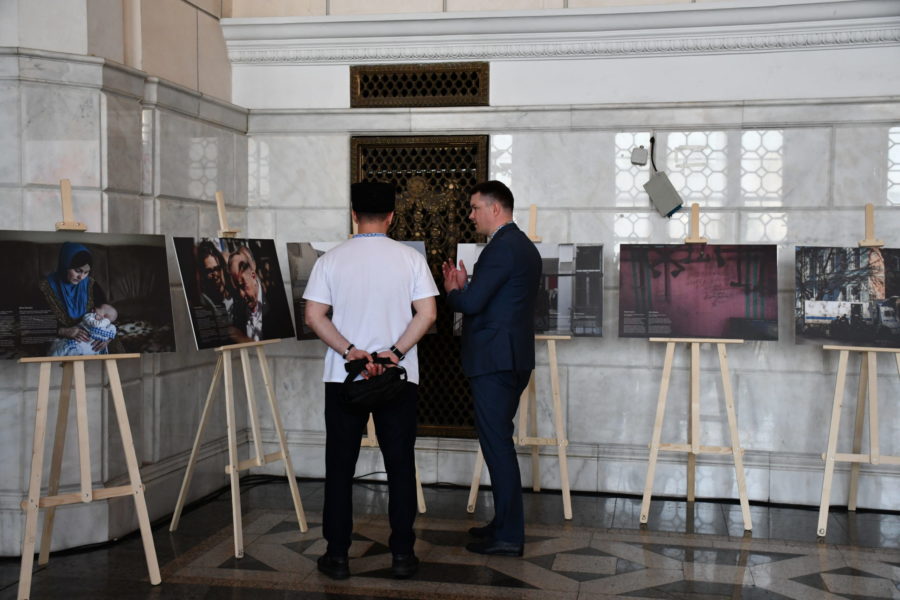 Photo: ZMINA
Photo: ZMINAIn addition, a video about life in Crimea during Soviet times and Russia’s occupation of the Crimean Peninsula in 2014, the persecution and imprisonment of Crimean Tatars, etc was shown.
Watch the full live stream of the event at the link.
If you have found a spelling error, please, notify us by selecting that text and pressing Ctrl+Enter.

